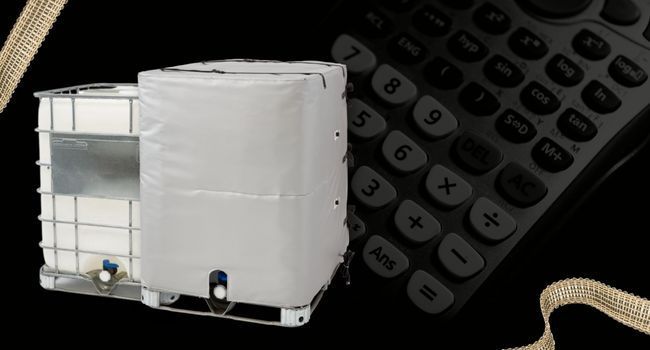Discover the science behind heating liquids and why it’s important
Heating liquids can be a tricky business. The laws of thermodynamics explain how heating affects matter and influences external forces, which in turn change the results for any given process - but it's not always easy to predict what will happen precisely!
At BriskHeat, we want to make that process easier for you! With our heat loss calculator and our breakdown of specific heat, we’ll guide you to easy calculations when it comes to your fluid heating needs!
What is Specific Heat?
Quite simply, it is the physical property described by the amount of energy required to increase a standard mass of a solution by 1 degree. One pound of salt requires 0.21 BTU of energy to raise the temperature by 1°F, whereas one pound of water requires 1.0 BTU of energy to raise the temperature by 1°F. Ever notice how puddles of water are always cooler than the cement or asphalt around it? That’s because the specific heat is higher for the water, meaning the hard surfaces heat faster than the water on top of it!
Why is it important?
Specific heat is an important property when considering how fluids are used by industry. Liquids are heated for different reasons. It may be to prevent the liquid from freezing, to reduce viscosity or to allow a reaction to occur. When a liquid is going to be heated to accomplish any of these, it is important to know the specific heat to calculate the required energy.
Consider these examples:
- A 1 cubic foot stainless steel tank is in a room maintained at 68°F. The tank is filled with water at 68°F and must be raised to 120°F in 3 hours. 500 watts of energy is required to raise the temperature. The same tank is filled with #2 oil which has a specific heat of 0.44 BTU/lb °F, and all other information is constant. In this example, the energy requirement is now 351 watts.
- Most cooks will add salt when boiling water. Why? Because adding salt increases the boiling temperature of water. Even though the boiling point increases slightly, the time required to reach the boiling point decreases. Adding salt to the water lowers a physical property known as specific heat. Salt has a very low specific heat (0.21 BTU/lb °F), while water’s is very high (0.999 or 1.0 BTU/lb °F). The solution has a heat capacity lower than that of water. When the same heat energy is supplied to equal amounts of salted vs unsalted water, the salted water will boil faster.
Suppose the opposite, a system is designed to heat a fluid with a lower specific heat. If it were to be repurposed to heat a fluid with a higher specific heat, it is likely the fluid would not reach the desired temperature, or it may heat at a lower rate and require more time.
How the BriskHeat Heat Loss Calculator Can Help!
BriskHeat’s Heat Loss Calculator is designed to assist in calculating custom fluid heating needs. This tool can be used for temperature maintenance, viscosity reduction, and the process heating of liquids!
There is a pulldown menu with a list of common fluids; however, there is an option to manually enter the density and specific heat of custom fluids. This will increase the accuracy of any heating calculation. BriskHeat has the expertise and portfolio of surface and immersion heaters to provide heating solutions unique to almost every need.
https://www.briskheat.com/heat-loss-calculator -> for heat loss calculator and tips on using it!
BTU: British Thermal Units
Specific Heat: The heat required to raise the temperature of the unit mass of a given substance by a given amount (usually one degree).









